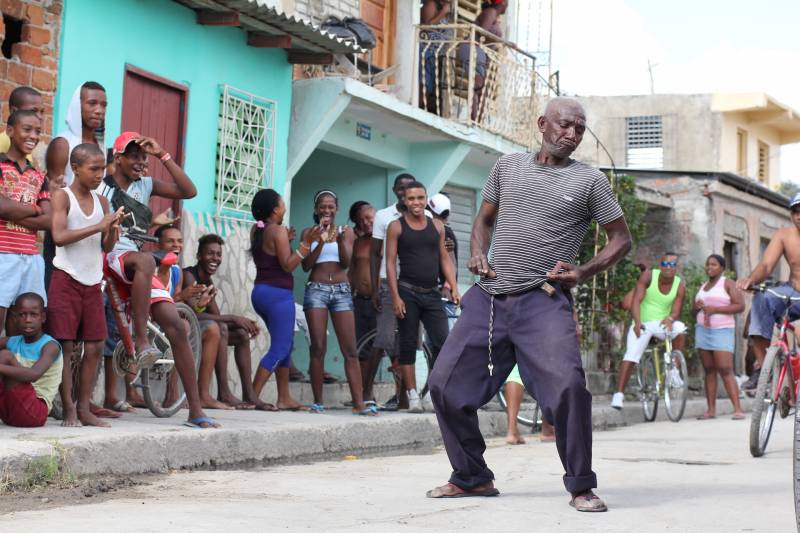The opening sequence of Bakosó: Afrobeats of Cuba informs viewers immediately they are on a journey, not just into sound, but into a deeply-spiritual culture.
The documentary, currently streaming on PBS, begins with a folktale about a man who goes to the orisha Elegua to ask permission to “find his music.” There are images of candles, prayer beads and cigar smoke against dark background. The contrast is dramatic. These shots are followed by a close up of an old woman wearing a hat, puffing on a stogie, her face painted into a ritual mask. She is the storyteller, but also apparently an orisha priestess. A percussive drum beat kicks in, and the woman starts dancing.
In Havana, where “where time never stops”, and “music is king,” we meet the film’s protagonist, Isnay Rodriguez Agramonte a.k.a. DJ Jigüe, a music producer working with an independent record label. After hearing a radio broadcast from Santiago explaining how bakosó is a fusion of popular African genres like kuduro with traditional Santiagoan conga and rhumba, Jigüe decides to make a road trip to connect with the Santiago scene.
Jigüe’s road trip is captured in fantastic nuance and detail by filmmaker Eli Jacobs-Fantauzzi, a former Berkeley resident who now lives in Puerto Rico. Cuba’s picturesque scenery offers lots of opportunities for dynamic shots of everyday life—working-class people playing dominoes, kids playing soccer—but also stark contrast to American life. While Havana has become somewhat modernized, the rest of Cuba very much fits the definition of a so-called developing nation whose streets are more rural than urban.
Jacobs-Fantauzzi focuses on Cuban youth culture and the inception of bakosó into the island’s music scene. As Jigüe connects with various figures in the Santiago music scene, their fascinating backstories show a remarkable creativity and innovation despite limited resources.


